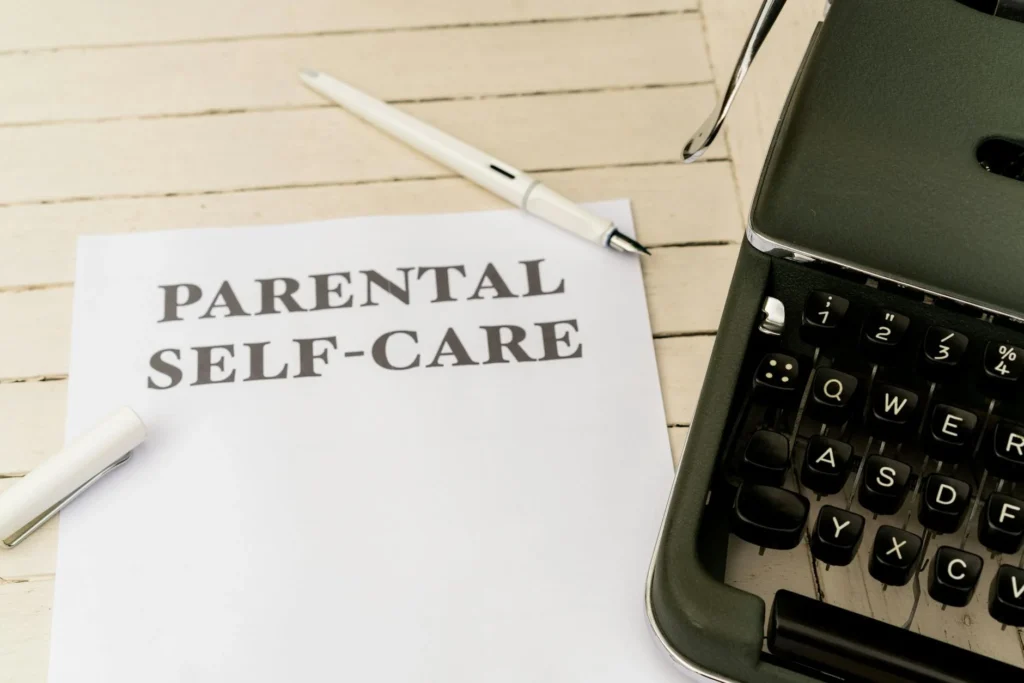Last updated on August 25th, 2025
Self-care goes beyond a cliché; it’s an essential practice that supports our mental, physical, and emotional well-being.
With the pace of modern life and the always increasing demands we face each day, understanding what self-care truly means and why it holds such importance is vital.
Self-care involves taking time for yourself, addressing personal needs, and creating a balance that supports overall health.
Recent years have seen a rise in the emphasis on self-care, largely due to its proven benefits in reducing stress and enhancing mental health.
Activities that promote self-care are not indulgences; they’re important components of a healthy lifestyle that help mitigate anxiety, promote resilience, and boost your capacity to thrive in the middle of life’s challenges.
Adding self-care to your daily routine can be as simple as setting boundaries, enjoying moments of solitude, or engaging in activities that nourish the soul.
As we go deeper into its various aspects, consider how prioritizing self-care could transform your life today.
Defining Self-Care: More Than Just a Cliché
Self-care is a term that gets tossed around a lot these days. But what does it really mean?
It’s taking intentional actions to care for your own physical, emotional, mental, and spiritual health. It’s recognizing when you need a break and giving yourself permission to take it.
In this present times, the society often demands more than we can give, thus self-care is no longer a luxury—it’s a necessity.
Physical Self-Care
Physical self-care is like fuel for your body’s engine. Without it, life can feel like a car running on empty.
Regular exercise, balanced nutrition, and proper rest form the trio of good physical health and play a huge role in how you feel day-to-day.
- Exercise: Helps in releasing endorphins, which are the body’s natural stress-busters.
- Nutrition: Eating well fuels your body and keeps your brain sharp.
- Rest: Prioritizing sleep is essential as it allows your body to repair and recharge.
According to a study on physical self-care, regular physical activity can improve mood, sleep, and energy levels significantly.
Photo by Markus Winkler
Emotional Self-Care
Emotional self-care means understanding and acknowledging your feelings. Activities like journaling and therapy can help you process emotions and build emotional resilience.
- Journaling: Writing about your thoughts can clear your mind.
- Therapy: Offers a professional perspective and tools to manage emotions.
Emotional resilience is handling life’s challenges, bouncing back stronger and more capable. Picture having a collection of emotional resources ready whenever you need them.
Mental Self-Care
Your mind needs care just as much as your body does. Mental self-care means engaging in activities that keep your brain healthy and your mind sharp.
- Mindfulness and Meditation: Help in focusing attention and reducing stress.
- Stimulating Activities: Reading, puzzles, or learning something new keep the mind active.
Good mental health is directly linked to improved focus, better decision-making, and overall life satisfaction. Learn more about mental health care from the National Institute of Mental Health.
Spiritual Self-Care
Connecting with something greater than yourself can bring deep peace and satisfaction.
Spiritual self-care involves connecting with purpose and meaning in life through nature, spirituality, or personal beliefs.
- Nature: Spending time outdoors can nurture a sense of peace and connection.
- Religion or Beliefs: Engaging with spiritual practices can offer comfort and guidance.
Spiritual self-care focuses on what you believe and how those beliefs make you feel.
It’s the balance and harmony in your spirit, the melody that makes life feel just a little more beautiful.
For further insights on self-care, check out this detailed article on its importance and practice.
Why Self-Care is Important
The constant hustle and pressure of today’s world can feel like carrying a heavy backpack up a mountain every day.
But unlike a backpack, which you can set down, stress doesn’t go away as easily. This is where we need self-care, the sunshine in a cloudy day.
Taking moments to breathe, reflect, and recharge. But why is this so important? Let’s examine how self-care impacts our lives.
The Impact of Stress on Health
Stress is like a shadow that follows us around. It’s not just a feeling; it can have real consequences.
Over time, stress can lead to both physical and mental health problems. Chronic stress can raise blood pressure, lead to heart problems, and even impact memory.
Studies show that constant stress is linked to conditions like anxiety and depression.
Incredibly, a study found that about 77% of people experience physical symptoms from stress.
This is like a silent alarm ringing in the background, reminding us that something needs to change.
Stress isn’t merely a nuisance—it’s a serious health risk, and ignoring it is like turning a blind eye to a fire alarm.
Self-Care as a Preventative Measure
Picture self-care as your shield of protection. Regular self-care acts as a shield, helping you ward off health problems before they start.
This is not just theory it’s a practical way to live. Taking care of yourself doesn’t mean changing everything all at once. It can be as simple as:
- Eating healthy foods to keep your body strong
- Getting regular exercise to boost your mood
- Prioritizing sleep to allow your body and mind to rest
- Practicing mindfulness to maintain a calm and focused mind
Making self-care a preventative measure is not only wise; it’s essential.
Improving Relationships Through Self-Care
Taking care of yourself not only affects you—it impacts those around you, too.
Picture yourself on an airplane, and they tell you to put on your oxygen mask first. When you look after yourself, you can be there for others more effectively.
Self-care helps improve relationships by:
- Enhancing communication skills—when you’re calm and centered, you listen and speak more effectively.
- Reducing conflicts—self-awareness leads to fewer misunderstandings and arguments.
- Building healthier boundaries—knowing when to say ‘no’ can preserve both your energy and your relationships.
For a deeper understanding of how self-care influences relationships.
Practicing self-care will improve your well-being and make your relationships richer and more rewarding.
So why wait? It’s time to prioritize self-care and let it transform your life.
Practical Tips for Integrating Self-Care into Daily Life
Let’s look at some practical steps to integrate self-care into your daily life, without feeling like it’s just another thing on your to-do list.
Creating a Self-Care Plan
A self-care plan can be compared to charting your course on a treasure hunt.
It requires knowing your goals and choosing the steps to reach them.
Here’s how you can tailor your own self-care routine:
- Assess Your Needs: Think about what areas of your life need more attention, be it your physical health, mental peace, or spiritual growth.
- Set Realistic Goals: Aim for attainable objectives like going for a walk daily or meditating for ten minutes.
- Outline Activities You Enjoy: Be it painting or playing the guitar, list activities that energize you.
- Time Your Activities: Allocate specific times for these activities, so they become a part of your daily schedule.
- Evaluate and Adjust: Regularly review your plan and make adjustments as needed.
Self-Care Ideas for Busy Schedules
Life gets hectic. We all have those days when finding time for ourselves seems impossible. But self-care doesn’t have to be time-consuming.
Here are quick ideas that fit seamlessly into your day:
- Morning Mindfulness: Start your day with a few deep breaths or a short reflection while brushing your teeth.
- Lunch Break Walks: Take a brief walk during your lunch break to refresh your mind.
- Digital Detox: Spend the last hour before bed away from screens to improve sleep quality.
- Gratitude Journaling: Write down three things you’re thankful for each night to end the day on a positive note.
Overcoming Barriers to Self-Care
We are often our own biggest hurdle when it comes to self-care, with excuses like “I don’t have time” or “I feel guilty taking a break.” Let’s bust these myths:
- “I Don’t Have Time”: Consider using a planner or setting reminders to schedule short self-care breaks during your day. Even 5 minutes can make a difference.
- “I Feel Guilty”: Remember that self-care is not selfish. Taking care of yourself enables you to be more present for others.
- “I Don’t Know Where to Start”: Begin with small steps, like scheduling a 5-minute meditation or a 10-minute walk.
Integrating these practices into our daily routine, will boost our mood and productivity while also helping us become more resilient.
Self-care is a journey; every step you take is a step towards a healthier life.
Self-Care Myths Debunked
Self-care is often misunderstood. Many people dismiss it as selfish or unnecessary unless they are in a crisis.
However, clearing up these myths can help us understand the true value of self-care in maintaining both personal and community health.
Photo by Alena Chuyankova
Self-Care is Selfish
Some people believe that taking time for self-care is selfish. They think it’s about putting oneself first at the expense of others.
But ask yourself, how can you care for others if you’re not in good shape yourself?
When you consider self-care as refueling your body, mind, and heart, it becomes clear that it isn’t selfish—it’s necessary.
Be it spending time reading a book or simply relaxing, self-care helps recharge you, making you more effective in supporting your family, friends, and community.
Taking care of yourself is like placing oxygen masks on yourself first on a plane.
You’re better able to assist others only when you’ve ensured your own needs are met.
The Canadian Mental Health Association emphasizes that self-care is essential for everyone, and it’s not something to feel guilty about.
You Only Need to Self-Care When You’re Struggling
Many people see self-care as a last resort, something to do when they’re already burned out or overwhelmed.
But self-care is more than a band-aid for bad days; it’s a preventative measure to keep those tough days from happening often.
Picture self-care as maintaining a car: regular oil changes prevent breakdowns.
Similarly, consistent self-care can help prevent stress and emotional fatigue.
Be it a Sunday walk, a warm bath, or simply going to bed early, self-care should be a regular practice.
According to The Truth About Self-Care Myths, self-care involves building a routine that supports overall well-being, not just a quick fix in hard times.
Breaking down these myths helps us embrace self-care as a vital part of everyday life, not just an occasional treat or a sign of weakness.
Understanding its true purpose allows us to nourish ourselves consistently, ensuring that we can handle life’s challenges with resilience and grace.
Final Thoughts
Prioritizing self-care is like having your personal wellbeing toolkit. It’s a necessity for maintaining mental, emotional, and physical health.
Taking time for yourself is not selfish—it’s essential.
Every step you take towards self-care is an investment in your future happiness and health.
Simple actions like a walk in the park, meditation, or a quiet moment with a book can have profound impacts.
Embrace self-care as a practice, not just an idea. Commit to small, consistent actions that support and restore you daily.
What self-care step will you start today? Your future self will thank you for it.
Adore our content? Spread the joy with your friends and pin it on your Pinterest board. Each share and pin significantly supports our mission to motivate others. Join our community by subscribing and sharing today.





